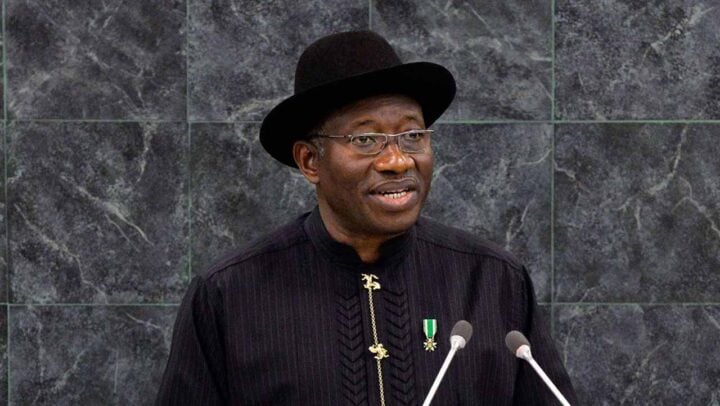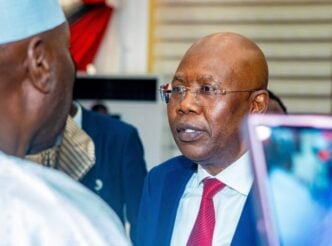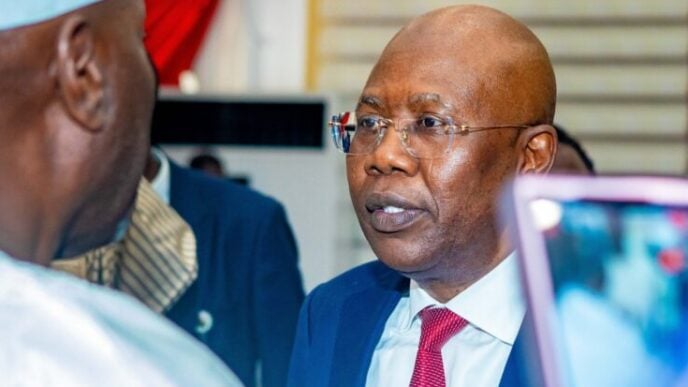Goodluck Jonathan
BY SUNDAY JAMES
Nigeria is living through a security meltdown that no longer shocks us, only exhausts us. Every few days, a new community is raided, children are abducted from their classrooms, families are dragged into the despair of ransom negotiations, and the nation is left clinging to another ambiguous “rescue operation.” Yet this tragedy did not begin today. It is the result of years of indulgence, denial, and opportunistic politics, a national failing that those who once weaponised insecurity must now confront, for the monster they nurtured has grown too large to control.
For years, northern leaders tolerated the rise of Boko Haram in the north-east, excusing, politicising, or outright denying its brutality. When communities cried out, the responses were either to downplay the threat or suggest that the violence was exaggerated for political gain. As the insurgency intensified, many of these same leaders turned their anger not toward the terrorists menacing their people but toward the government in Abuja. Under President Goodluck Jonathan, insecurity became political currency. Rather than push for unity against a common enemy, several northern political actors used every attack as a campaign talking point, indicting the presidency while absolving themselves of responsibility.
Today, many of those same actors occupy positions of authority or influence, yet the insecurity they once treated as a campaign tool has transformed into a nationwide crisis far greater than anything they criticised a decade ago. This time, however, they offer no solutions, no outrage, and no coherent strategy. Instead, Nigerians are fed a steady diet of evasive statements, unverified rescue claims, and a familiar call for “dialogue” with criminals whose only language is violence.
Advertisement
The facts are damning. SBM Intelligence reports that Nigeria has endured 735 mass kidnapping incidents since 2019, with over 15,398 victims abducted across the country. In the first months of 2024 alone, there were 68 mass abduction events, nearly one per day. These figures are not mere statistics, they are a symbol of a country that has lost control of its territorial integrity. The National Bureau of Statistics estimates that Nigerians paid a staggering ₦2.23 trillion in ransom within a single year. This is not just a number; it is a national emergency, the financial lifeblood of an expanding criminal economy.
The recent mass abductions illustrate how deeply we have sunk. More than 300 schoolchildren and teachers were kidnapped in Niger State in one of the most brazen assaults in recent Nigerian history. Days later, 25 to 30 girls were abducted in Kebbi State. Churches, highways, farms, and even urban streets are now theatres of fear. No part of the country is insulated from this violence.
Yet the official responses follow a familiar script: vague declarations, unconvincing rescues, and hints of deals struck behind closed doors. The pattern is consistent: victims disappear, ransom demands are made, the public is outraged, the government issues a statement, and then suddenly “rescues” are announced with little transparency, no arrests, and no credible explanation of what actually took place. If the state is not paying ransom, let it say so. If it is paying ransom, then it is empowering criminals and endangering us all. The silence is itself an indictment.
Advertisement
Nigeria’s biggest strategic error has been its willingness to negotiate from a position of weakness. No nation wins by begging those who terrorise it. We have rewarded criminals, normalised ransom payments, and made kidnapping one of the most profitable businesses in the country. We call them “bandits” instead of what they are: armed groups that thrive on the state’s hesitation. Any criminal who abducts children, massacres villagers, and levies taxes on communities is not a negotiating partner. The more we talk to them, the stronger they become. The more we pay, the more they kidnap.
Nigeria must reverse this logic immediately. We must rebuild capacity and negotiate only from strength, force these groups to lay down arms, not invite them to the table as if they are stakeholders. That requires a credible security strategy anchored in intelligence, not theatrics. It requires dismantling the financial networks of kidnap-for-ransom syndicates. It requires identifying and prosecuting every political, traditional, or religious figure who sponsors, enables, or profits from insecurity. Prison, not patronage, should be the fate of terrorist sympathisers.
The National Assembly must rise to the moment. Parliament cannot continue to issue motions of comfort while Nigeria bleeds. What this country needs is legislation that prohibits ransom payments, mandates forensic investigations into every mass abduction, and creates a national kidnapping database to track patterns and monitor security responses. The legislature must demand accountability from security agencies, insist on transparent rescue operations, criminalise negotiations with bandits, and push for modern security technologies that can anticipate attacks rather than merely respond to them.
Beyond lawmaking, Nigeria must rebuild the security ecosystem from the ground up: deploy intelligence-driven operations, invest in surveillance capacity, strengthen border control, empower community-based structures, and reform the justice system so that criminals face real consequences instead of returning to their camps emboldened. This is not theory; these are actionable, necessary steps.
Advertisement
Nigeria’s international image is deteriorating rapidly. We have become a global symbol of avoidable insecurity, a nation where criminals run parallel governments and children are currency. Investors are fleeing, diplomacy is strained, and the world now views Nigerian passports and travellers with suspicion. We are mocked, pitied, and misunderstood, but most tragically, we appear unwilling to rescue ourselves.
The uncomfortable truth is that insecurity was once a political tool. Today, it is a national reckoning. Those who enabled it, excused it, or used it for electoral gain should feel the weight of this moment. They demanded competence a decade ago; Nigerians must now demand accountability from them today.
We cannot continue like this. Nigeria must decide whether it will be a nation governed by law or a territory governed by fear. The hour for fence-sitting has passed. Insecurity will not disappear through appeasement. It must be confronted with strength, clarity, and resolve.
The time to act is now, because the monster we fed is still hungry, and it no longer recognises the hand that fed it.
Sunday James, a development communication expert and public affairs analyst, writes from Abuja.
Advertisement
Views expressed by contributors are strictly personal and not of TheCable.


